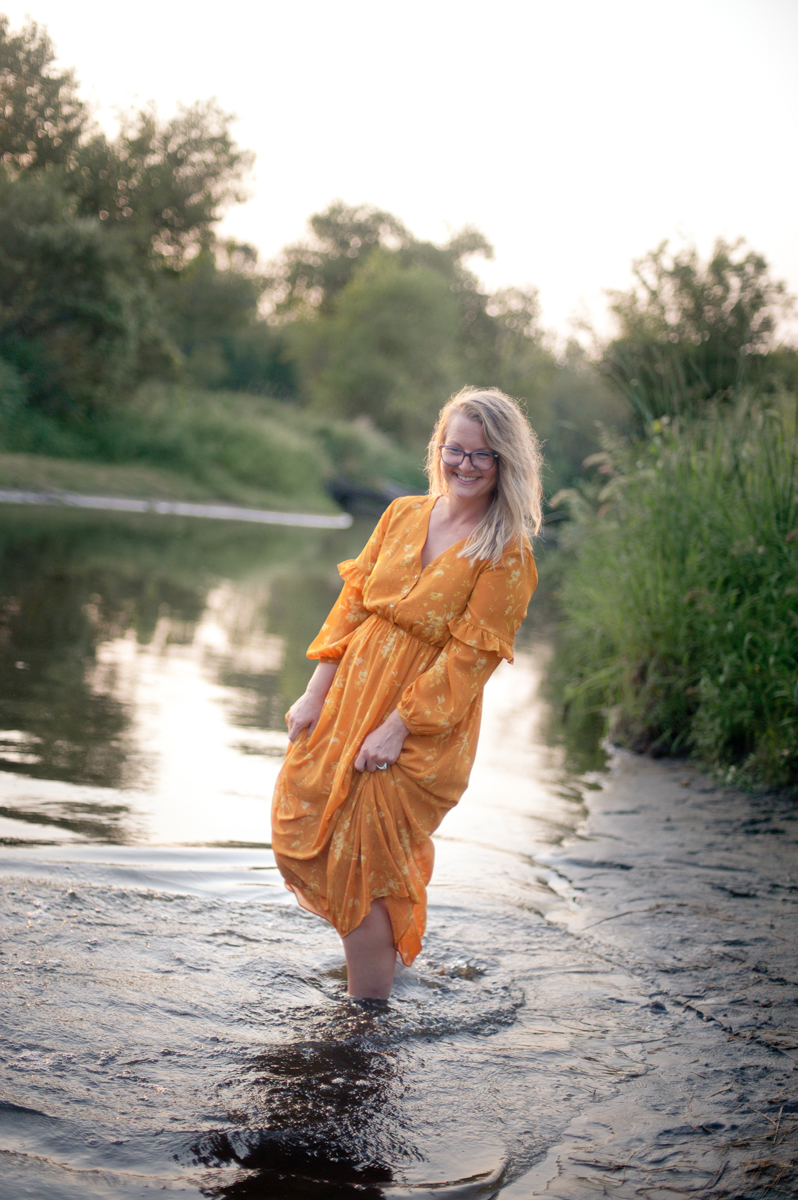
I find myself jealous of people going on vacation, remodeling their houses, and showing us things I couldn’t dream of having.
I’m even jealous of their outfits.
I grew up poor and moved from a low-income apartment to more of the same. I’d never lived in a house growing up, and since apartment life was all I knew, I became comforted by the close proximity of people and always being able to find someone to play with outside.
We had our own little posse of low-income kids and, yes, there was some trouble as most of us had single parents and were alone a lot. But I have some good memories of running around the apartment complexes with those kids.
When I was 30, I received an inheritance from a family member of 60,000 dollars. I was going through a divorce and had a seven-year-old son.
I paid off some credit cards, bought an 8,500-dollar used Volkswagen Jetta, got into a new place, and furnished it at IKEA. I then shopped and shopped, took a trip to Mexico, and by the end of that trip, only six months later, I had no money left and was back to charging up credit cards.
Baffling, right?
One memorable thing I did with the money was to take a trip to Ocean Shores with my son. It was my first really grown-up/adult road trip I had taken solo.
Money was no object, so I didn’t have to count change when fueling up. I had all new clothes to wear and a new (to me) car to drive, so my confidence wasn’t waning. I felt intact.
When I got there and immediately locked my keys in the car, I was able to call a locksmith for 60 dollars—no problemo!
Money for a hotel room? I’ve got it!
Horseback riding? Sure! Why not?
Renting a moped to ride on the beach. Indeed!
We were able to have more fun and take advantage of so many things we could have never been able to afford without that inheritance.
That trip was over 15 years ago, but I still remember how good that freedom felt, being able to take advantage of luxuries usually not afforded to me.
I still have vivid memories of our first time horseback riding, us cruising along the beach on our scooter, and happening upon a seal. I have a photo of my son with his head out of the sunroof while we cruised through the sand, and my heart was so full.
None of those memories would have come to pass without that money.
I’ve always scraped by, and I think that’s why, when I get money, I blow through it.
I feel sad when I can’t do things others are doing, or have things others have. I live a life of fewer trips, less big expenses, and luxuries.
It is hard for me to not feel inferior that I’m not in Mexico or Hawaii, but am saving up to take a casual camping trip or local road trip.
Don’t get me wrong, we have what we need. We have more than we need. We eat well, can fuel our vehicles (we have vehicles), and a roof over our heads.
It’s more of a poor mentality. I grew up poor and inherently feel like a “poor person.”
This poor mentality tells me I will never be as good as that person if I don’t have x, y, z. I’ll never add up, I’ll never be good enough, and soon, my brain and wallet begin to believe it.
I worked for years to cover up that facade with the right hair, car, and clothes, but over time it’s exhausting to live a lie, and I created a lot of debt.
It’s sad that in life, kids will be noticed and fit in when they have the right shoes and clothes, and when they don’t, they have to fight to be noticed. I struggled hard in junior high and high school to have enough, until “grunge” was trendy in the 90s and we frequented thrift stores.
How do we as a culture or even as individuals break this wealth mindset? That I’m only worthy when I have an abundance of wealth? It’s true that with more money, there is more freedom to travel and buy more things on a larger scale, but did you know even millionaires wish they had just a little bit more to feel secure?
The more you buy, the more tied down you are to your debts and material possessions. The more money you have, the more high-end items you see, and therefore need.
How can we learn to be content as a culture with what we have?
And the most important question, how do we get everyone to a level playing field?
Here I am complaining and jealous and annoyed with friends with million-dollar homes, when I’m perfectly content in my little townhouse.
I have what I need. My needs are met. I am abundant, but in saying that, it sucks to know that we can’t just pick up and take a tropical trip, and that money comes up a lot for us (including the lack of it).
I’ve been working toward a “simpler life” for a long time and know that material happiness is a facade. I watched “The Minimalists” and covet the simplicity of their lives, but I will blame social media for this one. Seeing others’ highlight reels, really can make me feel a twinge of envy. Just the other day, I saw someone in Mexico and Hawaii, and here I am in frozen Minnesota during a lockdown. Did they not get the memo? This is supposed to be a sh*t time!
Is it money that makes the heart grow fonder?
Does money cure all?
Is money the root of all happiness?
How do people create a balanced relationship with money? We use it daily and need it to survive, but it seems to be people either have too much or too little. What is the right amount of money to feel happy and satisfied with our lives?
Some people may have all the money, but lack relationships with others and feel that they are missing out. I feel like with enough money all of my problems would go away.
We took the Dave Ramsey financial class about a decade ago and, in turn, cut up all of our credit cards. We learned about having an “emergency fund” and how to save for retirement. I realize these things are out of reach for so many.
I know growing up, I watched my mom get paid every Friday and the money quickly disappear before the following Friday. We have lived paycheck to paycheck for many years.
I love hearing about manifestation and how it applies to money and, of course, I am all about the, “We live in an abundant universe” mantras, but how and when will that show up in my bank account?
I personally have a student loan worth 75,000 dollars that I pay monthly, but it never budges. Three hundred to five hundred dollars a month goes toward this government loan, and the interest is so high that my payment doesn’t touch it. How is that okay?
I had some hope in the presidential election that some help will come for these student loan debts. Not sure how I will retire while still paying off my student loan, and then I’ll have a college-age son, but my debt will still be glaring.
Again, I return to being fortunate that I have medical benefits at a time they are lacking for the majority. I am thankful to have a vehicle and fuel as I know this is a luxury.
I spent years in a program called Debtors Anonymous for people who, as a rule, were under earners. They couldn’t see their worth. Another set of people were compulsive spenders (I fall under that category). I could never see the big picture to plan for the future. I had the mentality of, why plan for the future, what if it never comes? Have fun now. Do what you want when you want to, and live without a plan.
Now in my 40s, I’m paying for that mentality. Impulsiveness is, for me, a way to escape and get instant gratification. Saying no to myself was not an option.
From growing up in a low-income family, I learned when the money is there, I need to spend it to get my “needs” met or the money will be gone and I will go without it. It’s a fear-based compulsive spending addiction.
My thoughts are that even with having all the money and material possessions in the world, without some type of spiritual connection or a peaceful connected inner life, misery will still be present.
Learning to live within my means is something I wish I could have heeded much earlier, along with knowing that my worth couldn’t be found in items, and that I was loved and worthy no matter what I owned or possessed.
This is a new revelation for me. I am worthy just as I am. I am good enough. I can’t fill the void I feel inside with material possessions. The joy I feel from a purchase is short-lived, until I see the next shiny object that catches my attention and need that as well.
Over the years, I have learned to be accountable with my money. I have learned to give some, save some, and use some—not all—but it’s still challenging, and I am a definite work in progress.
This is a hard thing to talk about but would love to open the dialogue about this green stuff that ultimately seems to rule many of our lives.
Feel free to open the discussion.
~











Read 18 comments and reply